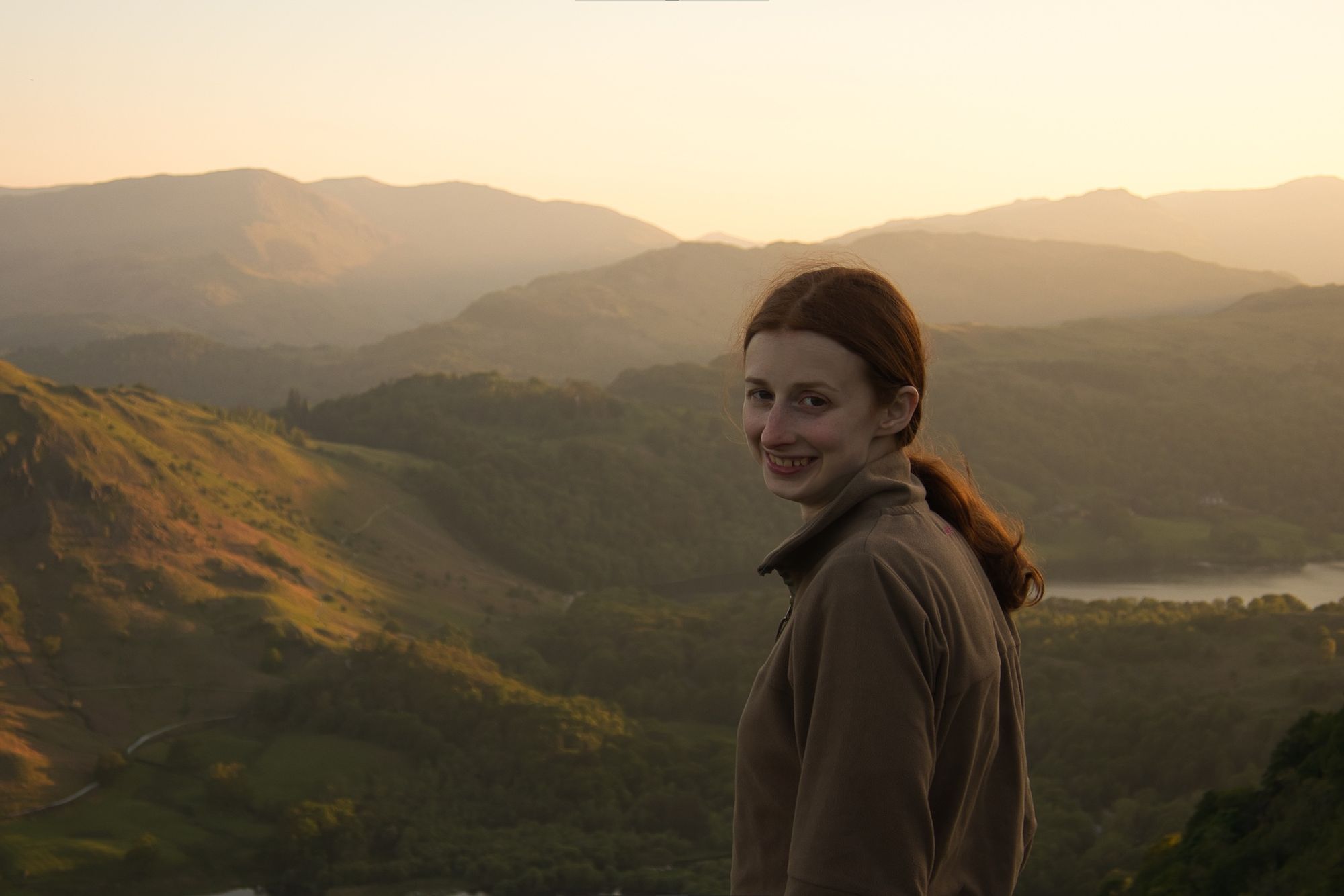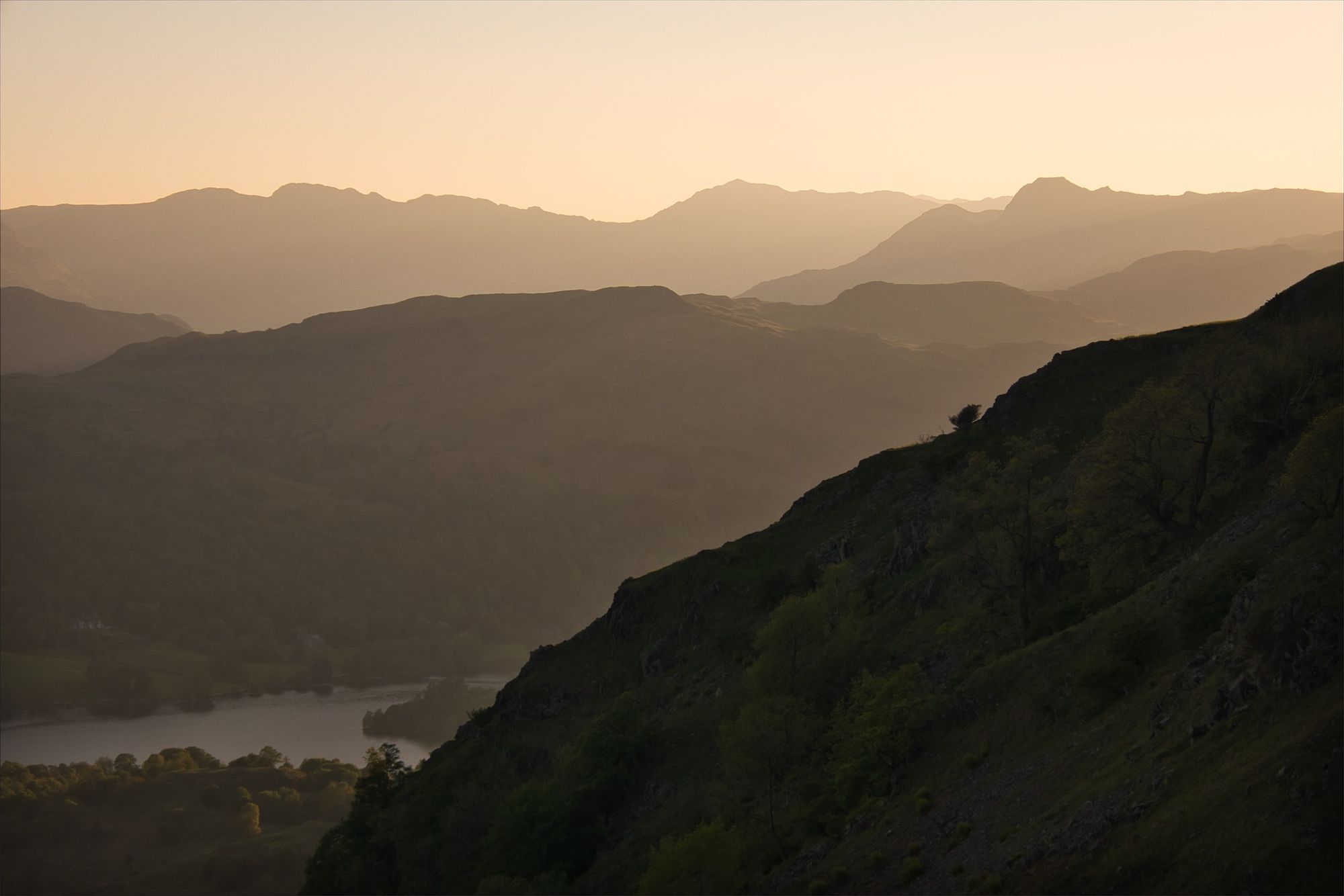The context of place

When I first visited the Lake District as a child, I wasn’t too impressed. I remember sitting in our family car at the jetty in Ambleside with rain washing down the windscreen. Dad pointed at mountains in the distance – barely visible through the murk – and said “Those are the Langdale fells. Maybe we’ll walk up there one day.” In the twenty years or so since, I’ve returned again and again, climbed all of those mountains more times than I can count. Life has changed like the weather.
When you return to a place again and again down the decades, it becomes a map of all the people you have been. In that Langdale skyline, I see the overweight child who never even imagined that hills and mountains would one day be so important. I see the teenager who dreamed of freedom and a grand trek of self-discovery through the Lake District before university and what he imagined to be an end to all his adventures. I see the ambitious climber who viewed the Lakes as nothing but a training ground, and I see the long-distance walker who came back and learned to love the area all over again. All of these hopes and dreams – all parts of me, some current, some old and gone – are written in these mountains.
This week, my wife and I stood on the summit of Nab Scar at sunset, looking out over that skyline I know better than any other topography. As I hugged her and watched the light turn to gold, I felt a powerful sense of completeness. Perhaps it was unconsciously that I’d chosen Nab Scar as one of our objectives for the day – a perfect vantage point from which to survey the landscape of my own childhood and adulthood. After almost eight years together, Hannah and I know each other pretty well, but there are some things you can’t understand without the context of place.
A complete human life is more than experiences and memories. Places define and sculpt us.

Alex Roddie Newsletter
Join the newsletter to receive the latest updates in your inbox.



